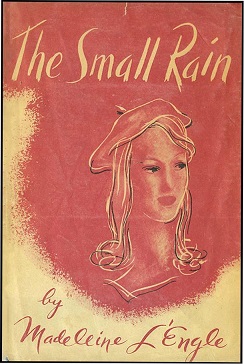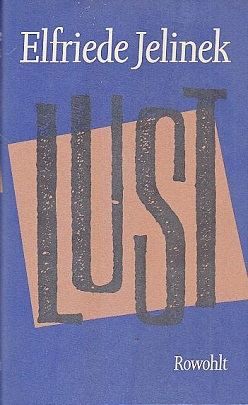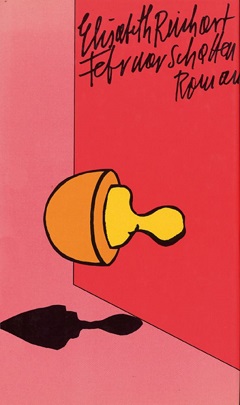
Isabelle Anne Madeleine Huppert is a French actress. Known for her portrayals of cold, austere women devoid of morality, she is considered one of the greatest actresses of her generation. With 16 nominations and two wins, Huppert is the most nominated actress at the César Awards. She is also the recipient of several accolades, including five Lumières Awards, a BAFTA Award, three European Film Awards, two Berlin International Film Festival, three Cannes Film Festival and Venice Film Festival honors, a Golden Globe Award, and an Academy Award nomination. In 2020, The New York Times ranked her second on its list of the greatest actors of the 21st century.

Angela Maria "Geli" Raubal was an Austrian woman who was the half-niece of Adolf Hitler. Born in Linz, Austria-Hungary, she was the second child and eldest daughter of Leo Raubal Sr. and Hitler's half-sister, Angela Raubal. Raubal lived in close contact with her half-uncle Adolf from 1925 until her presumed suicide in 1931.

The Piano Teacher is a 2001 erotic psychological drama film written and directed by Michael Haneke, based on the 1983 novel of the same name by Elfriede Jelinek. It tells the story of an unmarried piano teacher at a Vienna conservatory, living with her mother in a state of emotional and sexual disequilibrium, who enters into a sadomasochistic relationship with her student. A co-production between France and Austria, Haneke was given the opportunity to direct after previous attempts to adapt the novel by filmmakers Valie Export and Paulus Manker collapsed for financial reasons.

Elfriede Jelinek is an Austrian playwright and novelist. She is one of the most decorated authors to write in German and was awarded the 2004 Nobel Prize in Literature for her "musical flow of voices and counter-voices in novels and plays that, with extraordinary linguistic zeal, reveal the absurdity of society's clichés and their subjugating power". She is considered to be among the most important living playwrights of the German language.

Olga Neuwirth is an Austrian contemporary classical composer, visual artist and author. She gained fame mainly through her operas and music theater works, which often deal with topical and decidedly political themes of identity, violence and intolerance.

Lisa and Lottie, published in the United Kingdom and Australia as The Parent Trap, is a 1949 German children's novel by Erich Kästner. The book is about identical twin girls whose parents separated them in infancy upon divorcing, only to reunite at a summer camp years later before switching places.

Fall on Your Knees is a 1996 novel by Canadian playwright, actor and novelist Ann-Marie MacDonald. The novel takes place in late 19th and early 20th centuries and chronicles four generations of the complex Piper Family. It is a story of "inescapable family bonds, terrible secrets, and of miracles." Beginning in Cape Breton Island, Nova Scotia through the battlefields of World War I and ending in New York City, the troubled Piper sisters depend on one another for survival.
Illness or Modern Women is a play by the Austrian playwright Elfriede Jelinek. It was published in 1984 in the avant-garde journal manuscripte of Graz and premiered on the stage of the Schauspielhaus Bonn on February 12, 1987, directed by Hans Hollmann. The play was published in book form by Prometh Verlag in 1987 with an afterword by Regine Friedrich. The title "parodically conflates women with illness." The play is based on an earlier, shorter radio play by Jelinek called Erziehung eines Vampirs, which appeared in 1986 on Süddeutscher Rundfunk.

The Small Rain is a semi-autobiographical novel by Madeleine L'Engle, about the many difficulties in the life of talented pianist Katherine Forrester between the ages of 10 and 19. Published in 1945 by the Vanguard Press, it was the first of L'Engle's long list of books, and was reprinted in 1984. L'Engle began work on it in college, and completed it while an actress in New York.

Lust is a novel by Austrian author Elfriede Jelinek. Originally published in German in 1989, it was translated into English in 1992 by Michael Hulse.
Lust is an intense craving or drive that is directly associated with the thinking or fantasizing about one's desire, usually in a sexual way.

Elfriede Gerstl was an Austrian author and Holocaust-survivor. Gerstl, who was Jewish, was born in Vienna, where her father worked as a dentist.

Traveling on One Leg is a novel by Nobel Prize-winning author Herta Müller, published in German in 1989 by Rotbuch Verlag. An English translation was made available in 1998.

HeartCatch PreCure!, or HeartCatch Pretty Cure! is a Japanese anime series and the seventh installment in the Pretty Cure metaseries by Izumi Todo, featuring the fifth generation of Cures. The series is produced by Toei Animation, directed by Tatsuya Nagamine, and written by Takashi Yamada. Character designs were done by Yoshihiko Umakoshi. The series premiered on February 7, 2010 on TV Asahi's ANN network, succeeding Fresh Pretty Cure!, and ended on January 30, 2011, where it was succeeded by Suite PreCure.

February Shadows is a 1984 historical novel by award-winning Austrian author Elisabeth Reichart. She wrote it as a response to her discovery of the Mühlviertler Hasenjagd, a massacre on 2 February 1945 at the Mauthausen-Gusen concentration camp in Upper Austria. In the Mühlviertler Hasenjagd, the civilian inhabitants of the Mühlviertel hunted down and killed almost 500 prisoners, including men, women and children, who escaped from Special Barracks Number 20.

Wonderful, Wonderful Times is a novel by Austrian writer Elfriede Jelinek, published in 1980 by Rowohlt Verlag. It is Jelinek's fifth book. An English translation by Michael Hulse was published in 1990 by Serpent's Tail. A film adaptation of the novel, The Excluded, was released in 1982.
Was geschah, nachdem Nora ihren Mann verlassen hatte; oder Stützen der Gesellschaften is a play by Austrian playwright Elfriede Jelinek. It was first published in 1979 and premiered in October that year, directed by Kurt-Josef Schildknecht, in Graz.

Lotte no Omocha! is a Japanese manga series written and illustrated by Yui Haga about Naoya, a man brought to a magical world as a candidate for the Princess Astarotte's harem. Lotte no Omocha! began its serialization run in the July 2007 issue of Dengeki Maoh and later republished in collected volumes by ASCII Media Works. In 2011, the manga series was adapted into an anime television series under the title of Astarotte no Omocha!, produced by Diomedéa under the direction of Fumitoshi Oizaki which aired between April and June 2011.
The Wall is a 1963 novel by Austrian writer Marlen Haushofer. Considered the author's finest work, The Wall is an example of dystopian fiction. The English translation by Shaun Whiteside was published by Cleis Press in 1990.

The 2004 Nobel Prize in Literature was awarded to the Austrian writer Elfriede Jelinek "for her musical flow of voices and counter-voices in novels and plays that with extraordinary linguistic zeal reveal the absurdity of society's clichés and their subjugating power". She is the tenth female and the first Austrian Nobel laureate followed by Peter Handke in 2019.















